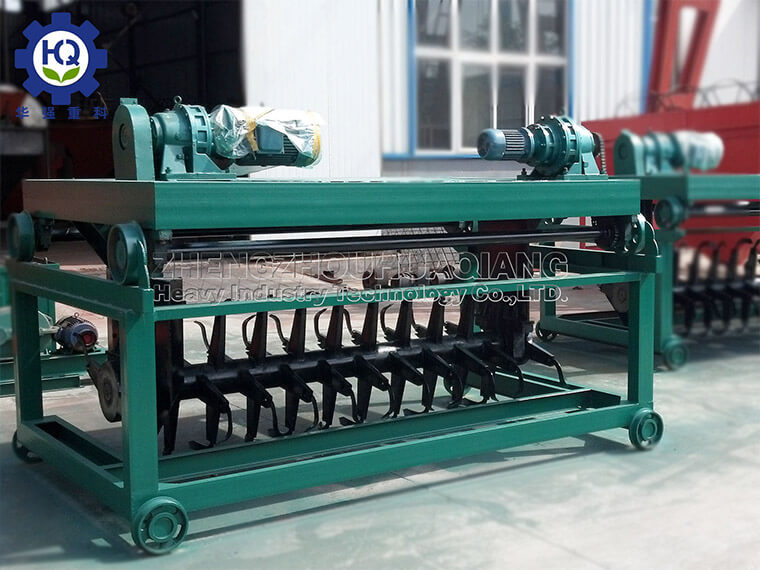What are the impacts of using an organic fertilizer composting machine to ferment fertilizers on the land
The impact of organic fertilizer compost on land is mainly reflected in the following aspects. These positive effects can significantly improve soil health, promote crop growth, and also contribute to environmental protection and ecological balance:

1. Soil structure improvement
The organic matter in organic fertilizers is transformed into stable humus after fermentation. These humus can increase the soil aggregate structure, improve the binding between soil particles, and make the soil more loose and porous, with significantly improved air permeability and drainage. This is extremely beneficial for the development of crop roots and can improve the crop's ability to absorb water and nutrients.
2. Improve soil fertility
Fermented organic fertilizers are rich in various essential nutrients for plants, such as nitrogen, phosphorus, and potassium. Some insoluble minerals are also broken down by microorganisms into forms that can be absorbed by plants. Long term application can significantly improve the overall fertility level of the soil and meet the nutrient requirements of crops at different growth stages.
3. Enhancement of microbial ecosystem
The microbial population activated during the fermentation process can rapidly proliferate after entering the soil, enriching the variety of organisms in the soil and forming a healthy microbial community. These microorganisms can help decompose organic matter in the soil, promote nutrient cycling, inhibit harmful bacteria, and protect crops from disease invasion.
4. Relieve soil pollution
During the fermentation process of organic fertilizer compost, some toxic and harmful substances are decomposed or transformed, reducing problems such as heavy metals and antibiotic residues, and alleviating chemical pollution to the soil. Meanwhile, the organic substances in organic fertilizers can also adsorb pesticide residues in the soil, reducing the harm to groundwater and the ecological environment.
5. Adjust soil pH value
After applying an appropriate amount of organic fertilizer to the soil, it can have a certain buffering effect, adjust the pH of the soil, make it close to neutral, and provide an ideal growth environment for most crops.
6. Promote carbon sequestration effect
The organic carbon in organic fertilizers can be stored in soil for a long time, which helps alleviate global greenhouse gas emissions and has a positive effect on combating climate change. Meanwhile, increasing soil organic carbon content is also an effective way to improve soil quality and productivity.
In summary, the positive impact of using organic fertilizer composting machines to ferment fertilizers on land is comprehensive. It can not only improve crop yield and quality, but also enhance the sustainable production capacity of land. It is an effective method to combat fertilizer dependence and chemical agriculture side effects, and is of great significance for building green ecological agriculture.
评论
发表评论